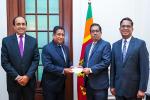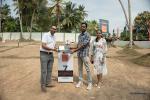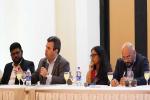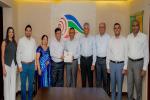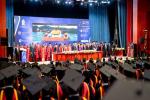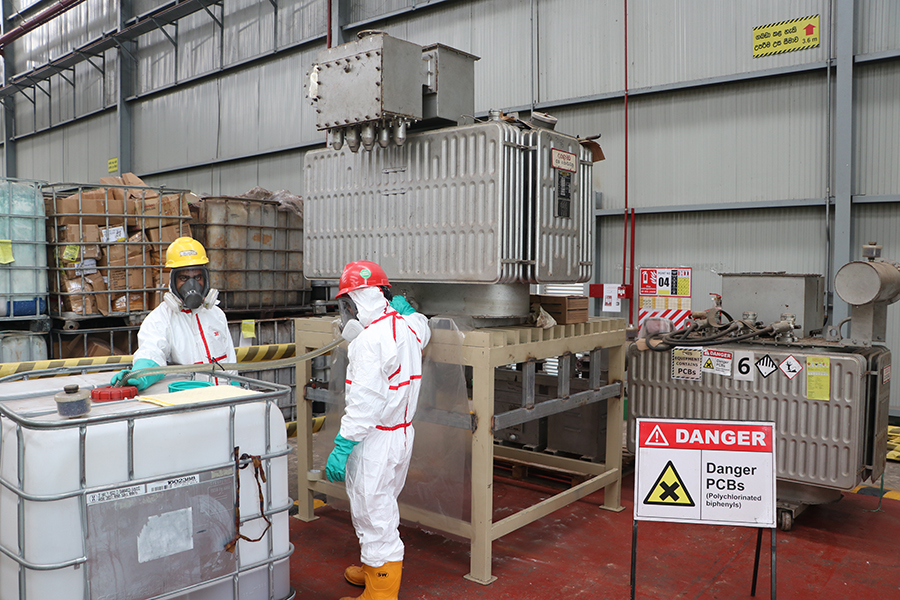PCBs were commercially produced worldwide on a large scale between the 1930s and 1980s and have been used in many industrial applications including electricity transformers and capacitors.
However, PCBs have dangerous effects on the environment and human health.
They are class 1 carcinogenic and have been linked to developmental disorders in children.
“Sri Lanka is part of the global movement to eliminate the use of PCBs in equipment by 2025 so this is a very important milestone for us as a nation.
For a longtime, a safe way to dispose of this large stock of PCB-contaminated oil has been searched and the National Implementation Plan (NIP) for the Stockholm Convention of Sri Lanka also identified phase out and disposal of PCBs as one of the priorities requiring immediate attention and action.
So, it was important for us to have the right waste management partner capable of managing a project of this importance.
Taking this point as the overall objective, the Ministry of Environment signed an agreement with UNIDO for environmentally sound management of PCBs in utility and welding sectors and INSEE was selected to carryout disposal process following an international bidding process conducted through UNIDO”, says Mr. B.K. Prabath Chandrakeerthi (Attorney at Law), Secretary to the Ministry of Environment, emphasizing the significance of the project and referring to the INSEE Ecocycle’s role.
As Sri Lanka’s pioneering force in waste management, INSEE Ecocycle embraced the pivotal role of overseeing the complete process, from collecting hazardous materials to transportation, secure storage, and final disposal – all in strict adherence to global standards.
“We are very proud to have been a part of this project.
INSEE Ecocycle has worked closely with the Ministry of Environment, lending our expertise to a wide array of projects in the past, this is by far the most significant,” says Sujith Gunawardhana, INSEE Ecocycle’s General Manager.
UNIDO’s Project Manager, Dr. Carmela Centano also stressed the importance of this project,
“This not only mitigates potential health and environmental risks within Sri Lanka but also showcases the transformative power of collaborative efforts with the private sector in addressing complex environmental challenges.
This project stands as a beacon of hope for future initiatives aimed at protecting our planet for generations to come.”
When executing the project, INSEE Ecocycle took extensive measures to prioritize the safety of both individuals and the environment.
Ahead of project execution, the INSEE Ecocycle team underwent rigorous training covering waste management, risk assessment, and the correct use of personal protective equipment.
Furthermore, specialized training in emergency response procedures was imparted to enhance preparedness.
INSEE Ecocycle also raised awareness about proper waste management practices among CEB workers handling PCBs on the ground.
Additionally, customized vehicles were designed and deployed specifically for the safe transportation of waste materials, further mitigating potential risks.
INSEE, as the only organization in Sri Lanka equipped for co-processing, led the way in handling a major part of the PCB-contaminated materials consignment through co-processing, which is an environmentally safe waste management method in line with Central Environmental Authority (CEA) regulation.
Additionally, a smaller portion of ultra-high PCB concentrated oil and associated transformers were sent to the Belgium partner for incineration which cannot be handled with the available technology in Sri Lanka.
“Through collaborative efforts, we've responsibly disposed of a major portion of PCB-contaminated transformer oil and transformers, addressing environmental hazards and safeguarding both our ecosystem and the people involved,” says Krishantha Hemarathna, CEB’s Project Manager.
He commends the commitment and expertise of the Ministry of Environment and INSEE Ecocycle for spearheading the project as well as all stakeholders who contributed to its success.
The success of the project was a result of close collaboration between a broad group of stakeholders including the Central Environmental Authority, the Ceylon Electricity Board and People to People volunteers led by the Ministry of Environment.
It demonstrates the power of collaboration in addressing critical environmental challenges and underscores the commitment of all stakeholders to environmental stewardship, sustainability, and public health.

